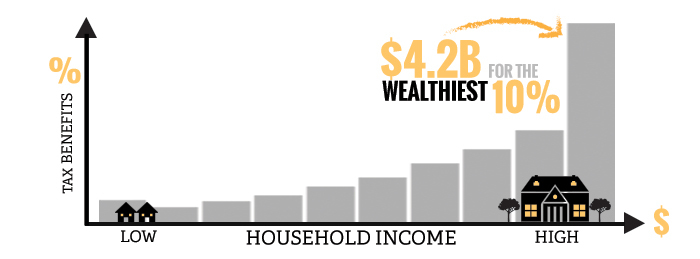Why They're Terrified: A Full Transcript Of Jeremy Corbyn's First Public Speech As Leader

If you want to know why Jeremy Corbyn terrifies the absolute sh*t out of the ‘establishment’ – particularly within the British Labour Party - then look no further than his first public speech, delivered just a few hours ago after winning the party’s leadership.
In a break from tradition, not only in Britain but in western countries around the world, Corbyn used his maiden speech to take aim at the institutions which he says have been denying the basic human rights of people all over the world.
Corbyn chose a rally in support of refugees for his first public speech, delivering a rallying cry to the ‘faithful’ on the left, and taking aim at politicians across the world, who, he says, have recently ‘rediscovered’ their humanity amid a groundswell of support for Syrian refugees.
At times, the speech seemed a little stilted and forced – Corbyn is British, and so passion doesn’t come as easily as it does to a Martin Luther King, for example. But what it lacked in delivery it made up for in sentiment.

Jeremy Corbyn, delivering his first public speech as Labour leader.
Corbyn also took aim at the media, of whom he was “shocked beyond appalled” at the way they describe those seeking asylum as illegals.
Above all, Corbyn’s key message was one of peace – a sentiment not sincerely expressed by a British leader at any time in living memory, let alone as their first speech to a nation as leader.
To his British parliamentarians he had this to say: “… open your hearts and open your minds and open your attitude, towards supporting people who are desperate, who need somewhere safe to live, want to contribute to our society and are human beings just like all of us.
“Together in peace, together in justice, together in humanity, that surely must be our way forward.”
You can watch Corbyn’s speech below.
And the complete transcript of the speech is reprinted here.
Jeremy Corbyn, Parliament Square, London
September 12, 2015
I’ve never seen Parliament Square looking so filled, so beautiful and so happy as on this day. Thank you all for being here today.
When I was declared elected three and a half hours ago, I announced to our conference that my first action in this new position as leader of the Labour Party would be to come to a demonstration in support of refugees, the right to asylum and the human needs of people all over the world.
And I do that because we are all humans, we all have a sense of decency and humanity and reaching out to others. And I am shocked beyond appalled at the way so many and so much of our media over so long, endlessly describe desperate people in desperate situations as ‘the problem’; desperate people in desperate situations, as people who are trying to travel or move illegally.
Those desperate people in desperate situations are all over the world. There are more of them now than at any time ever in the recorded history of this planet.
They’re victims of war, they’re victims of environmental degradation, they’re victims of poverty, they’re victims of human rights abuses all over the world.
We have a responsibility as one of many countries that signed the 1951 Geneva Convention on the Right to Asylum. We are a country that is a member, obviously, of the UN, but also of the Refugee Council and the Human Rights Council.
And we therefore have a responsibility to ensure those people are properly cared for and properly supported.
And so I think it’s quite incredible what has happened across Europe in the past few weeks. Suddenly a lot of politicians have rediscovered their principles of humanity. They’ve rediscovered that you don’t need to walk in fear of the far right and racists – there is actually a popular uprising in favour of decency and humanity in our society.
To those who managed to try to get into Hungary, to get through Austria, to get into Germany, I say to the ordinary people, the ordinary decent people in Hungary, who came out of their homes to offer food and water and clothing and health and sustenance and comfort to Syrian people going through the most terrible stress and distress in their lives, thank you very much for your demonstration of humanity.
I also say thank you to the people in Austria who did the same, and I say thank you to Germany, for being prepared to take the numbers of refugees they are, and showing the way that should be followed.
I also say that we need to have a thought as to why people end up in such desperate situations. I’ve been in parliament a long time and I’ve seen many decisions taken. And in moments of clamor and moments of fervor, decisions are made – go here, invade there, bomb there, do this, do that.
It’s the easy situation, the media build it up, there’s lots of military advice, there’s lots of apparently simple and easy solutions. Tragically wars don’t end when the last bullet is fired, or the last bomb is dropped.
The mourning and the loss of soldiers of all uniforms goes on. The mourning and the loss of families that lost loved ones because of bombardments and fighting – that goes on.
The refugees move on and on, and there are whole generations of refugees around the world that are victims of various wars. Those desperate people in camps in Lebanon, in Jordan, in Libya and so many other places, desperate people trying to cross into Turkey and other places – they are all, in a sense, victims of wars.
So surely, surely, surely, our objectives ought to be to find peaceful solutions to the problems of this world; to spend our resources on helping people not hindering people; and to try and bring about that world of decency, human rights and justice.
And so none of this is simple, and none of this is easy. But surely we have a principle between us all – that we are all human beings on the same planet. We’re all human beings who want to live. We’re all human beings who want the children who live in the next generation to hopefully be better off than we are.
And you think of those families eking out an existence in refugee camps all around the world – they too are ambitious. Their children too want to be artists, poets, writers, engineers, lawyers, journalists… doctors and everything else.
The waste of human resources by the lack of human rights is one of the great crimes of the last and this century.
So today, here in Parliament Square, we as ordinary, decent people, stand up and say to our government, recognise your obligations in law. That would be good. Recognise your obligations to help people, which you’re required to do by law. That would be good.
But above all, open your hearts and open your minds and open your attitudes, towards supporting people who are desperate, who need somewhere safe to live, want to contribute to our society and are human beings just like all of us.
Together in peace, together in justice, together in humanity - that surely must be our way forward



